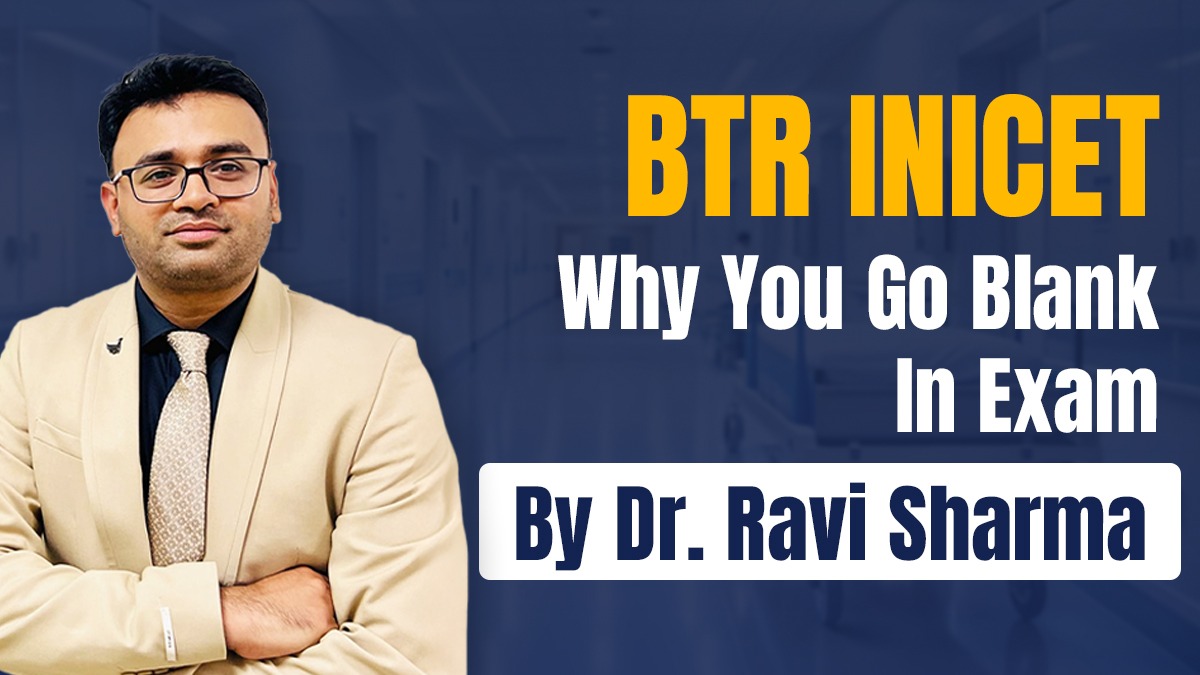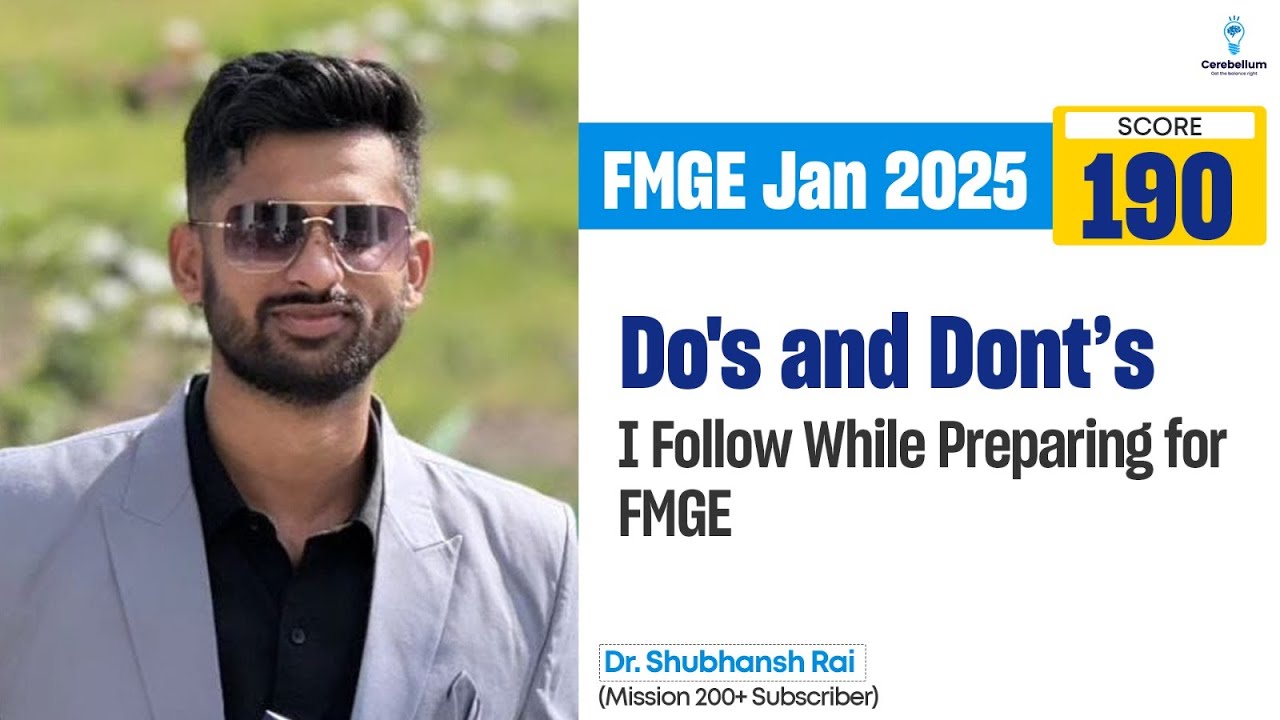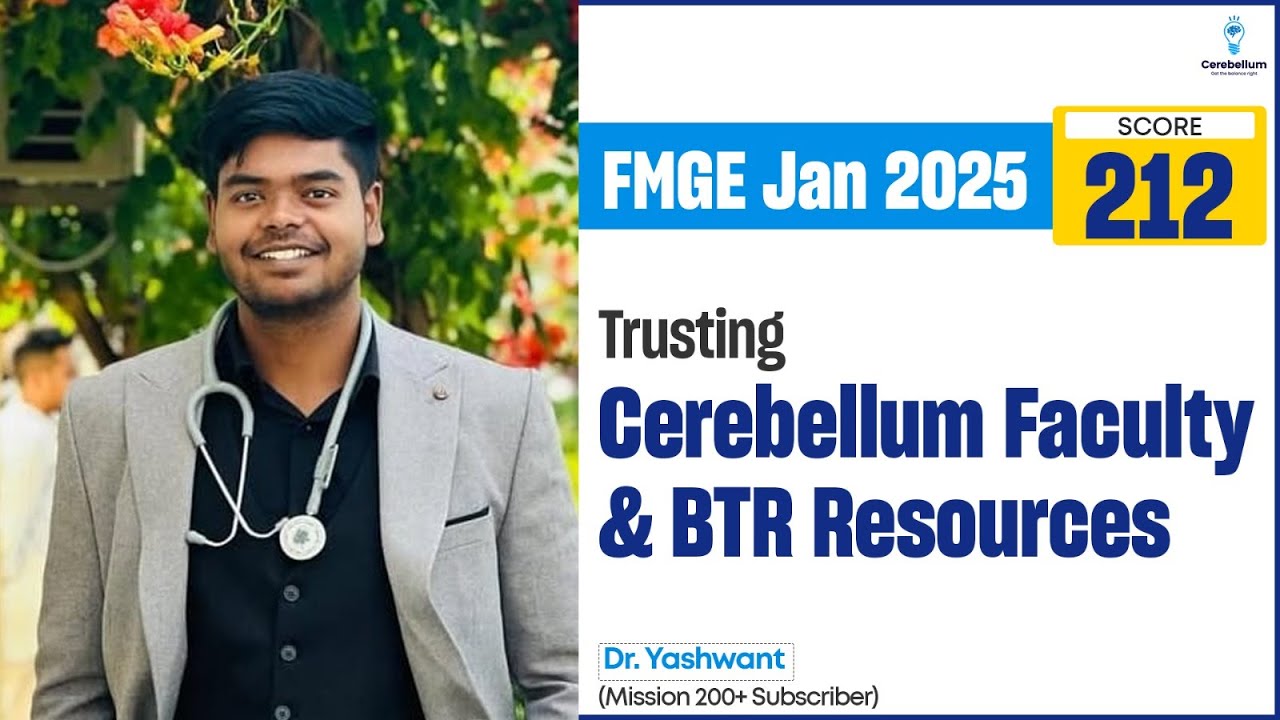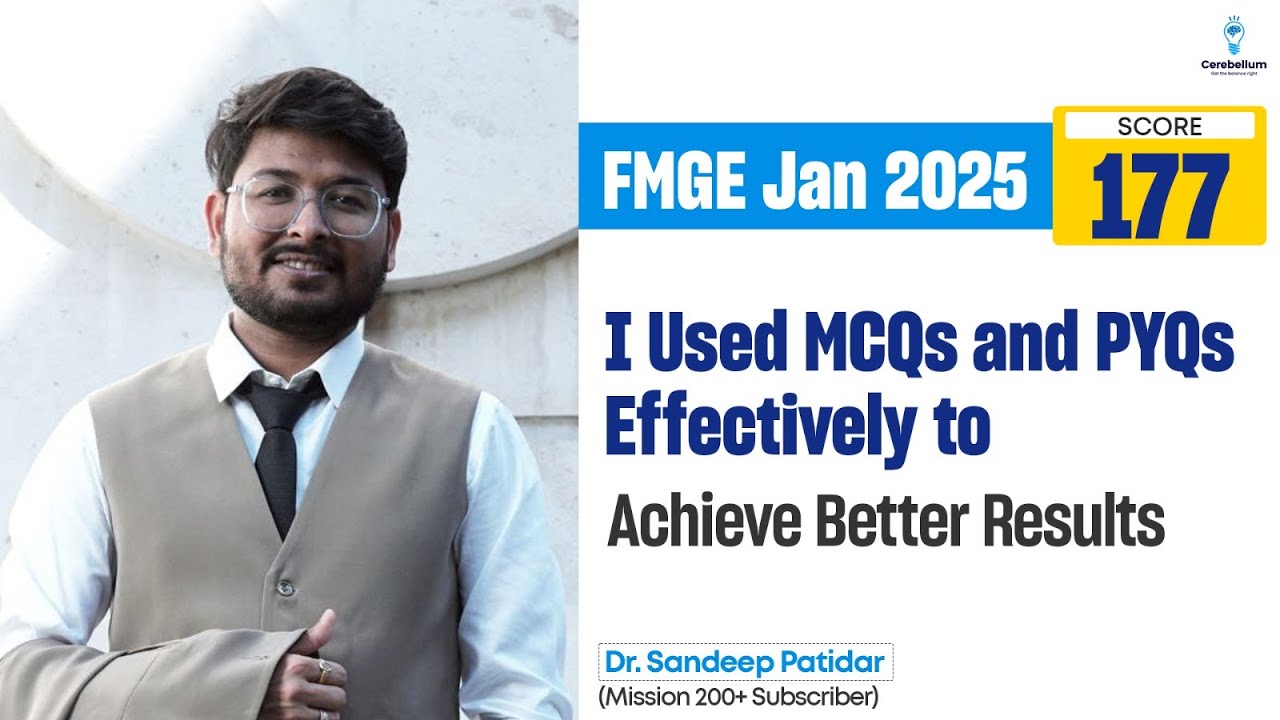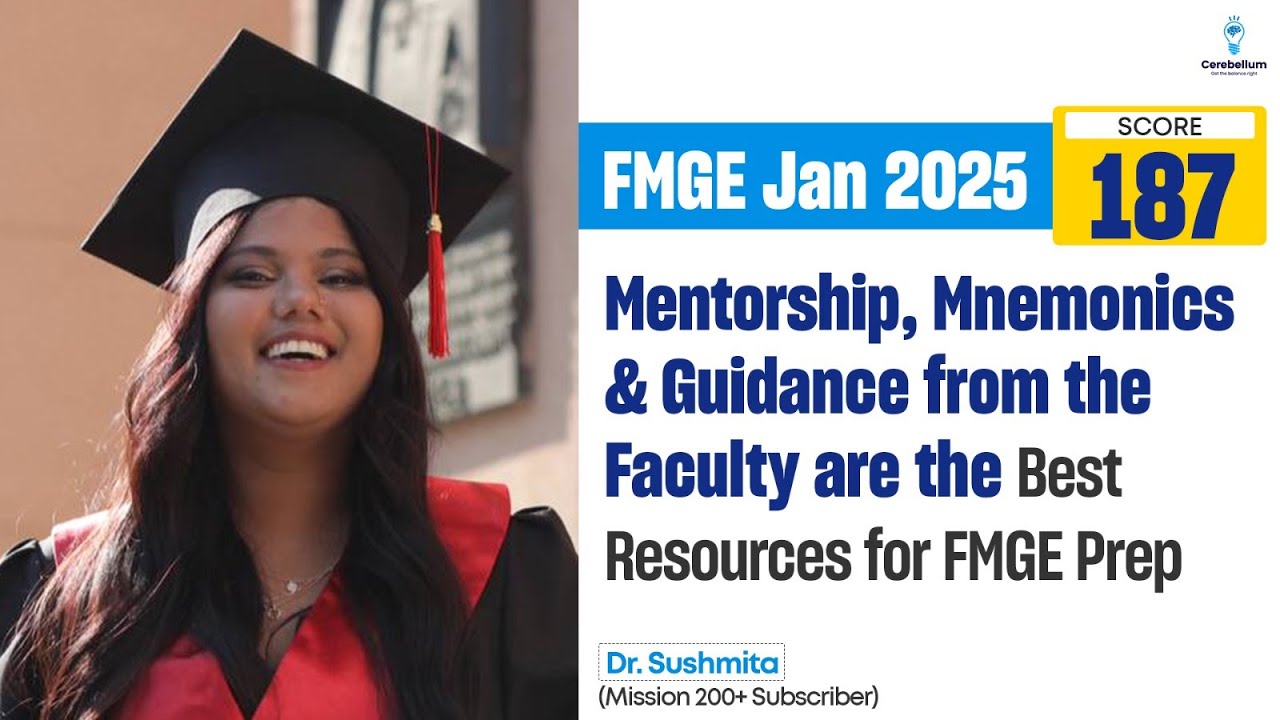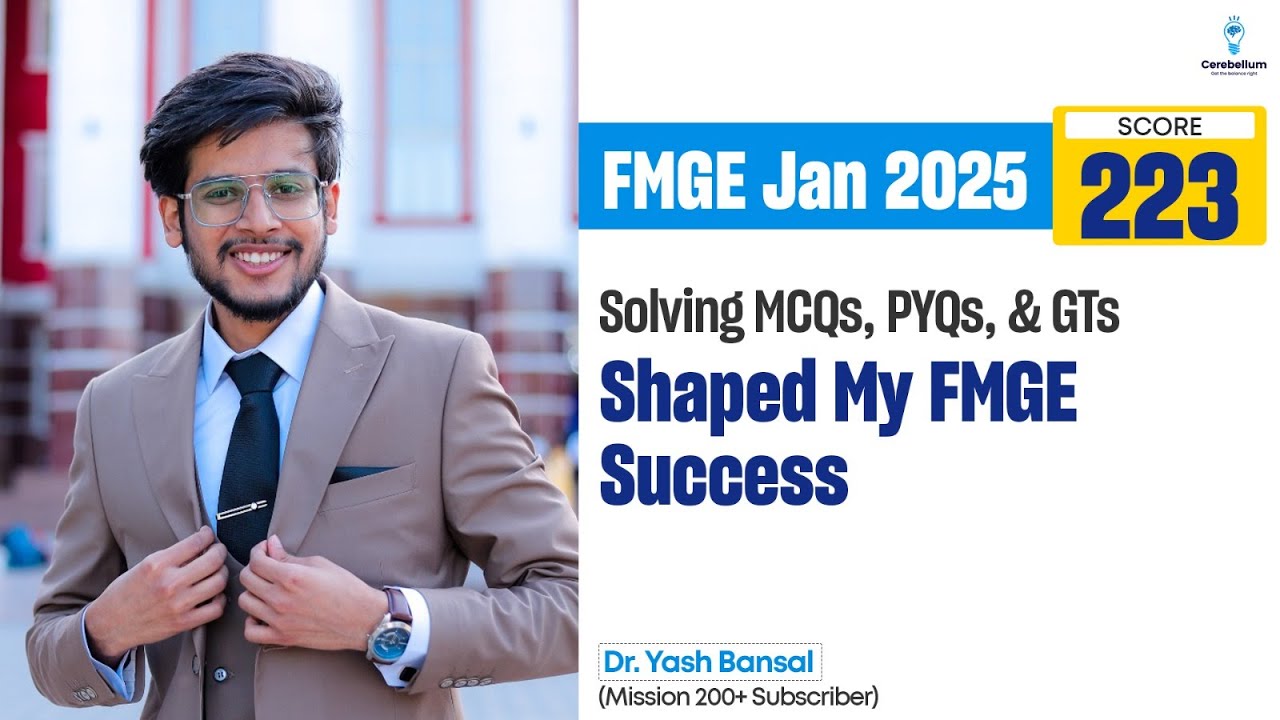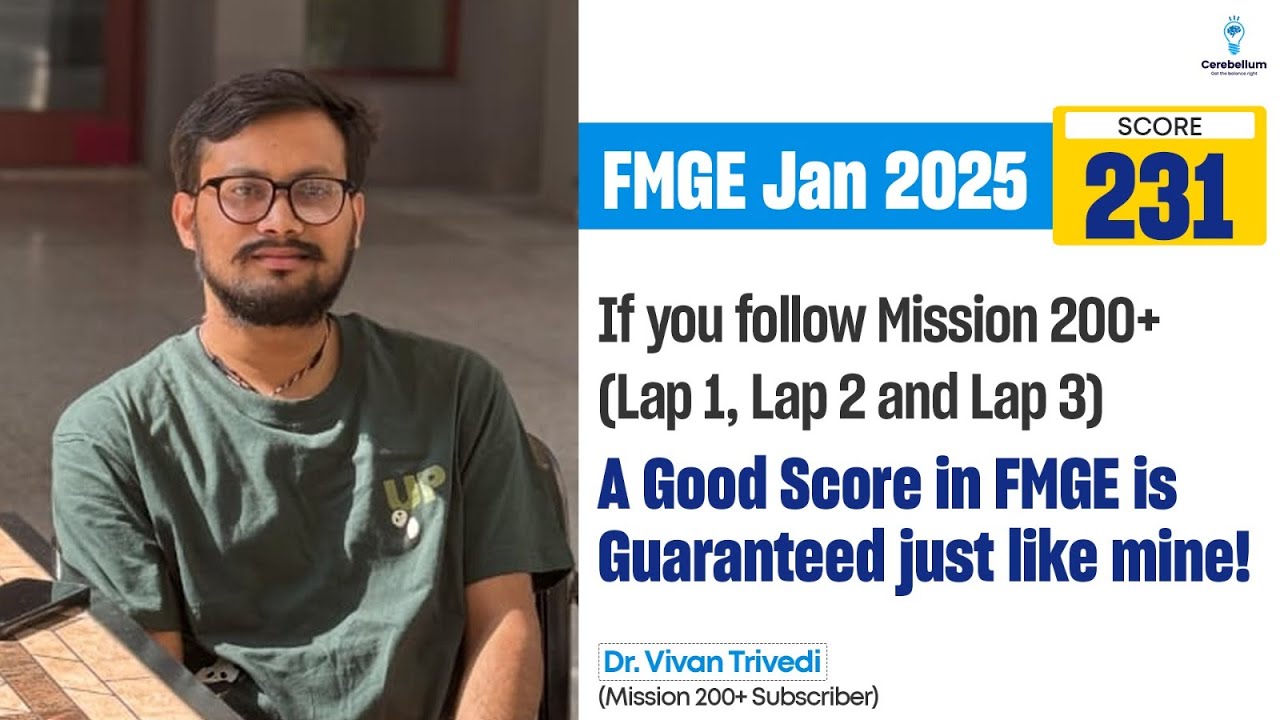This was the most common query which I faced in the bootcamp – “Sir, I go blank in the exam.”
We had a lot of CBT (Cognitive Behavioral Therapy) sessions there. Students would come back and say that they went blank. Unfortunately or fortunately, it has never happened to me in my life, so I never understood how a student can go blank. I mean, what problem does a student have when they go blank?
During the bootcamp, I read extensively about how people become blank, hoping that at least some of you, after understanding the basic mechanism behind it, don’t go blank in the final exam.
What happens is that there is a concept called working memory. Working memory is generally controlled by the prefrontal lobe of our brain. We all have long-term memory that we’re currently building – studying, creating memories, remembering some things, forgetting others, then remembering again.
But when you sit in an exam, scientifically speaking, you are only using your working memory with some cerebellar recall (not cerebral recall). When people face this blackout, there is something called the Yerkes-Dodson law.
The Yerkes-Dodson law is a graphical representation showing the relationship between performance and anxiety. Based on this and working memory models, psychologists have classified how people behave psychologically in any test or exam.
Let me explain what this law shows – it’s about performance versus level of stress. The Yerkes-Dodson law shows an inverted U shape with several phases:
- Boredom
- Alert
- Engaged
- Challenged
- Optimal
- Fatigued
- Exhaustion
- Anxiety
- Panic
- Breakdown and burnout
During exam time or preparation phase, you all go through different phases. From my bootcamp observations over the last 35 days, the distribution is 70-20-10:
70% of people lie in the distress zone. 20% are in the comfort zone – nothing affects them. Neither the bootcamp nor their own performance bothers them. They’re extraordinarily chill people who rely purely on guesswork. They have no particular ambition or drive. If they succeed, fine; if not, that’s fine too. I’ve seen such laid-back people in the bootcamp who came just because they left home and wanted to tour Delhi.
But we won’t talk about these people. They never came to me asking about blackouts because how can you black out when your stress level isn’t even high? When you don’t care about your performance?
The problem lies with those 70% whose arousal level is very high but performance level is falling. These are students who have studied well but can’t recall during exams. They’ve given many mock tests (GTs) but get completely confused in the final GT. Many students are in this distress zone, experiencing exhaustion, anxiety, or breakdown and panic.
This happens because of a dual conflict. Your working memory has very limited space – it’s not infinite like your long-term memory. You can put many things in long-term memory, some will stay, some won’t be potentiated. But working memory always has a very limited span compared to long-term memory.
The brain has an option to focus on either:
- Something in front of you (your question) – an external stimulus, or
- Something which is an internal conflict
According to this model, people with high arousal and low performance are very hyperactive, but they start compromising their working memory. Their working memory gets divided between external stimulus and internal conflict. And the moment they face the first roadblock – it’s over. Blank.
This happens because a considerable amount of your working memory space is already consumed by internal conflict. What’s really happening is:
- You’re not just reading the question, you’re also thinking “I can’t do this”
- You’re not focusing on the question because you’re thinking about how your previous exam went badly
- These thoughts come simultaneously
- While reading the question, you’re wondering “What if I fail? What will my parents say? What will my ex-boyfriend say? What will my friends say?”
All these thoughts occupy your mind at the same time. So the portion of working memory left for your exam becomes very small. And when that limited portion faces its first roadblock, it goes blank. It goes blank because that small amount of working memory doesn’t have the potential to deal with that particular question. And after that, people’s exam is basically over.
This is what happens scientifically. There are two ways to fix this:
- You need to understand that focusing on internal conflict during an active task is not important. You have to train yourself to “be in the game.” When you’re doing anything, make a habit of focusing on that task alone because your working memory is limited.
- The second issue is lack of confidence, which potentiates the problem. If you tell yourself 10 times before the exam that you won’t succeed, you’re increasing the internal conflict component significantly.
Some people think that speaking negatively about themselves brings better luck in life – like protecting themselves from the evil eye. That’s not true. Speaking negatively about yourself only makes things worse.
You need to say positive things so that your internal conflict doesn’t rise to a level that compromises your working memory. Lack of confidence is the real problem. When you face the first bouncer (difficult question), you think the match is over. Whether you’re out or not, at the first bouncer you feel like the match is over – like you don’t have the potential to continue this exam.
To overcome this blank stage, you need to practice daily. Let’s say INI has 50-question slots – practice 50 questions in 45 minutes daily. Let there be any number of questions you don’t know. Your only practice goal should be ensuring that your internal conflict about the outcome doesn’t surface. Focus only on the task at hand.
This means solving those 50 questions in 45 minutes, thinking only about reading each question and giving probable answers, regardless of the result. Even after attempting the question set, don’t worry about your marks. This practice is essential because you need to get used to facing many “bouncers” in the exam whose answers you might not know, but you still have to move forward.
You need to read the next question without blanking out. And if by chance you do blank out, treat it like an appliance – what do you do when it’s not working? You turn it off and on. If you blank out in a test, don’t continue reading continuously.
Let’s say you start feeling it coming – like that nausea before vomiting. Just take a pause in the exam – 2 minutes, 3 minutes, 4 minutes, 5 minutes, whatever you need. Because if you don’t take a pause and keep answering questions with the same mindset, you’ll mess up the entire exam.
Take a break, close your eyes, count to 100. You need to stop that existing working memory frame because that cassette keeps playing where you only have 10% available space to work, and 90% is consumed by internal conflict. For this, scientifically proven methods are either reverse counting or forward counting. Reverse counting takes more working memory, so it will break the pattern. The moment you start counting, it breaks your working memory – breaks that cassette.
This works as a scientific principle. Many students in the bootcamp face this problem. People ask me, “Sir, I don’t understand this topic, what more should I study to prevent this?” But studying more won’t fix this. I couldn’t find any psychology book saying study more or that you haven’t worked hard enough. It’s not that – this has been explained scientifically.
The people who get good ranks aren’t necessarily free from anxiety. They’re in that optimal growth and learning phase where their anxiety level and performance level peak simultaneously. See, if you’re not anxious enough – like some people say you shouldn’t have fear of failure… Have you seen The Dark Knight? Batman says “I’m not afraid of anything,” and the response is “Are you stupid?” Fear is the most powerful motivator in this world. When a lion chases, everyone runs – you need to save your life. Nothing motivates more than fear.
So stress and anxiety can be profitable and useful if they’re at an optimal level for an optimal duration, consuming an optimal amount of your working memory space. You all need to practice this when doing custom modules – get used to many questions you don’t know, but don’t blank out on them.
That’s how the blank phase will disappear. And if somehow you face that “white screen of death” in real life, then switch yourself on and off. Reverse counting is particularly powerful for pausing your working memory.
This is the most scientific answer for those who asked me about exam blackouts. This wasn’t meant to be a motivational talk, but I wanted to address this topic because I’ve seen so many students affected by it. People come crying after exams because they worked so hard but don’t know what went wrong.
If this happens to you, follow this technique and understand that your working memory has very limited space. You can either focus on the task at hand or your internal conflict about failure. Make it a habit not to think about failure during exams, especially when facing 10-15 new questions you can’t solve. Practice with custom modules that have questions you can’t solve, but aim to reach the last question in the same state of mind.
This needs practice. Many of you will be well-prepared for INI-CET, but some will say after the exam, “My friend who barely studied got a better rank than me.” This happens because you blacked out in the exam. That’s why people who stay in the alert, engaged, comfort zone are happier. The 70% in the distress zone have this problem – they complete their preparation but don’t get results.
You need to move yourself from the distress zone to the optimal zone of anxiety. Being anxious, stressed, or worried about your exam doesn’t mean you’re wrong – it’s necessary for peak performance. Everyone experiences anticipation, anxiety, and stress, even the person who will rank first. But they can handle the equation between optimal performance and optimal arousal described by this law.
Thank you so much. I hope even if one or two of you benefit from this, I’ll be very happy. We’ll share this recording with bootcamp attendees too, because I really wanted to answer their questions. Thank you.

